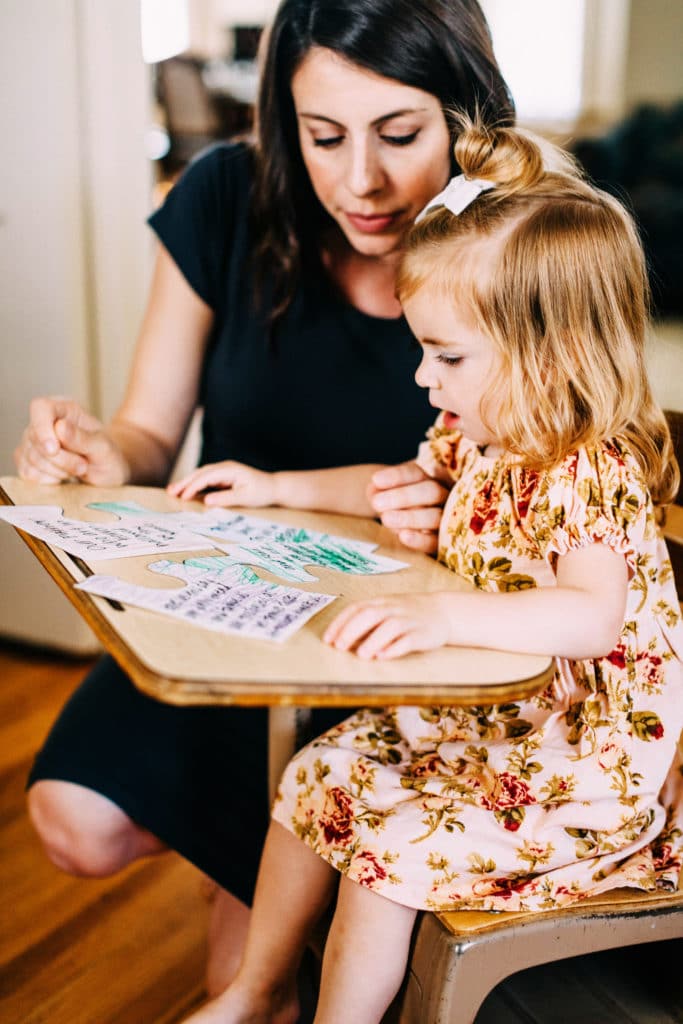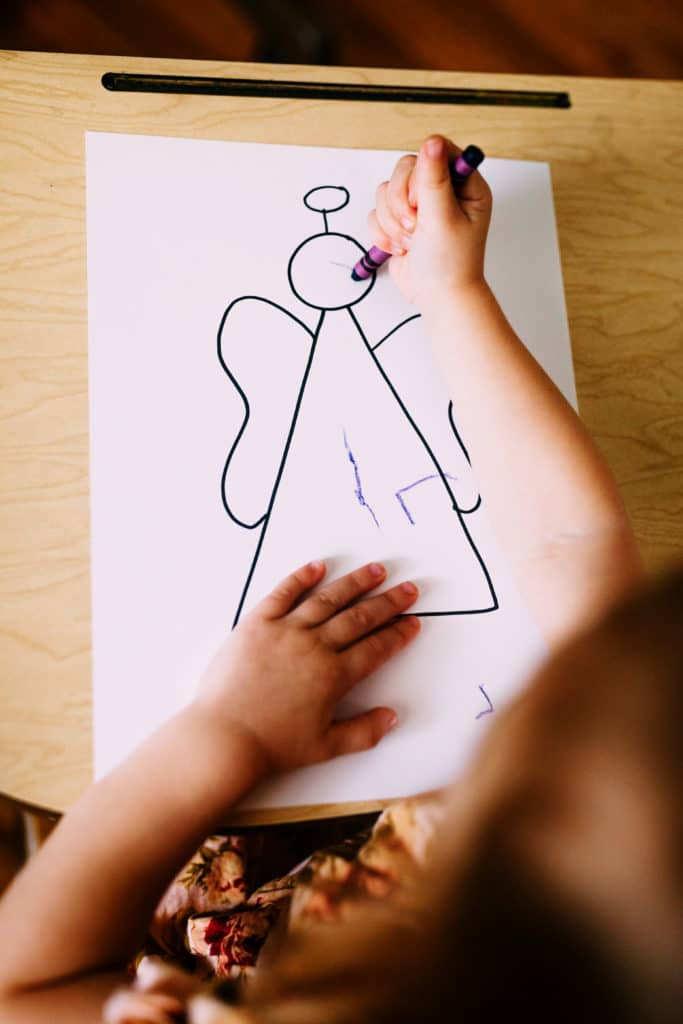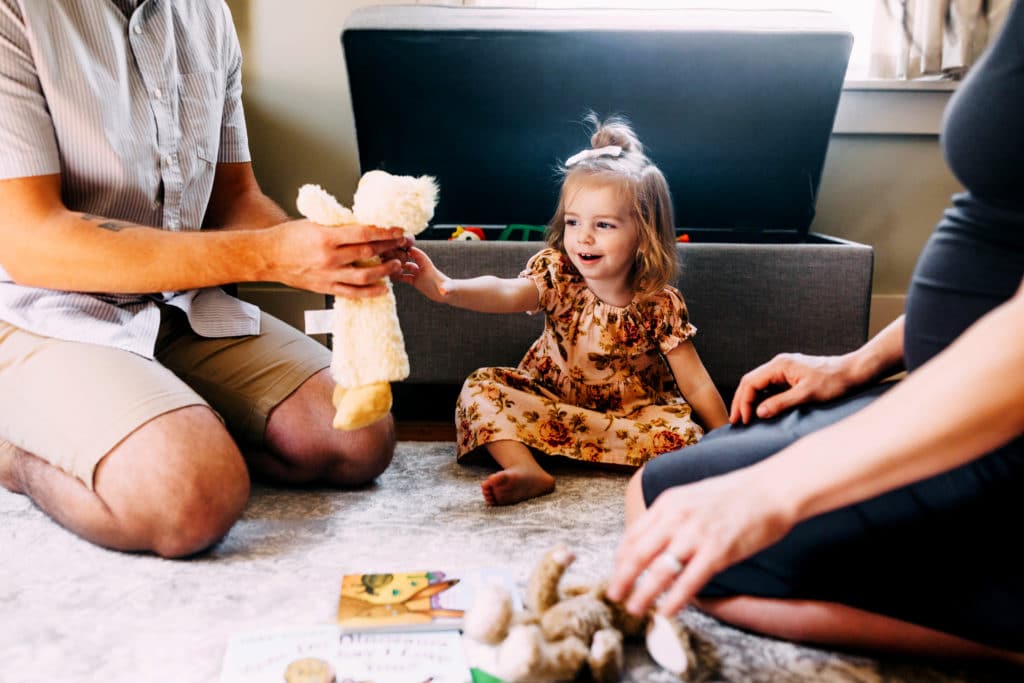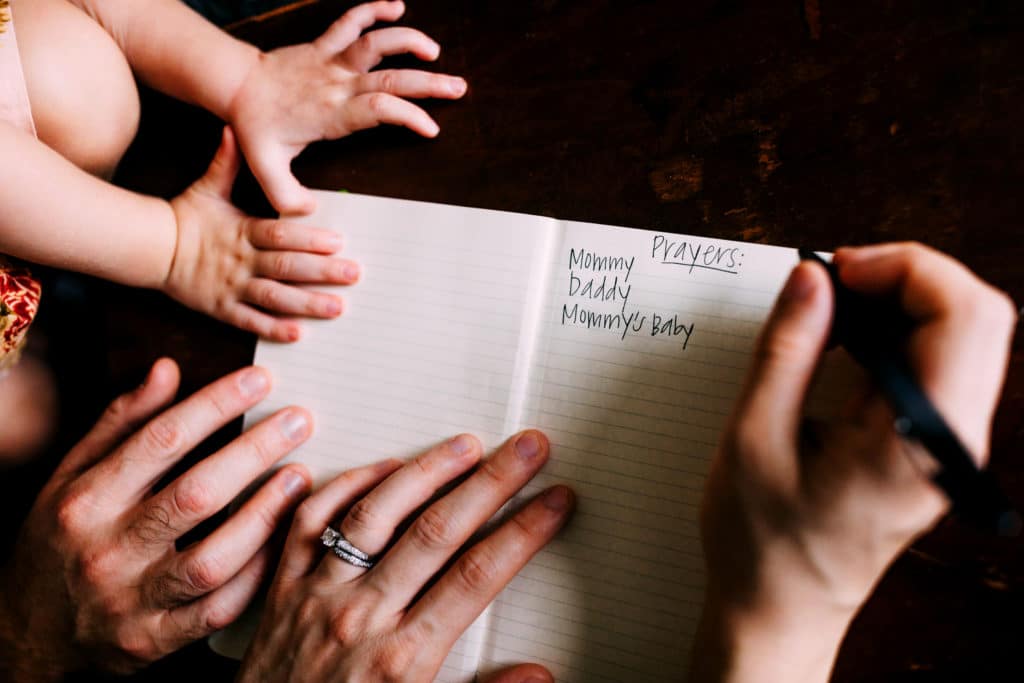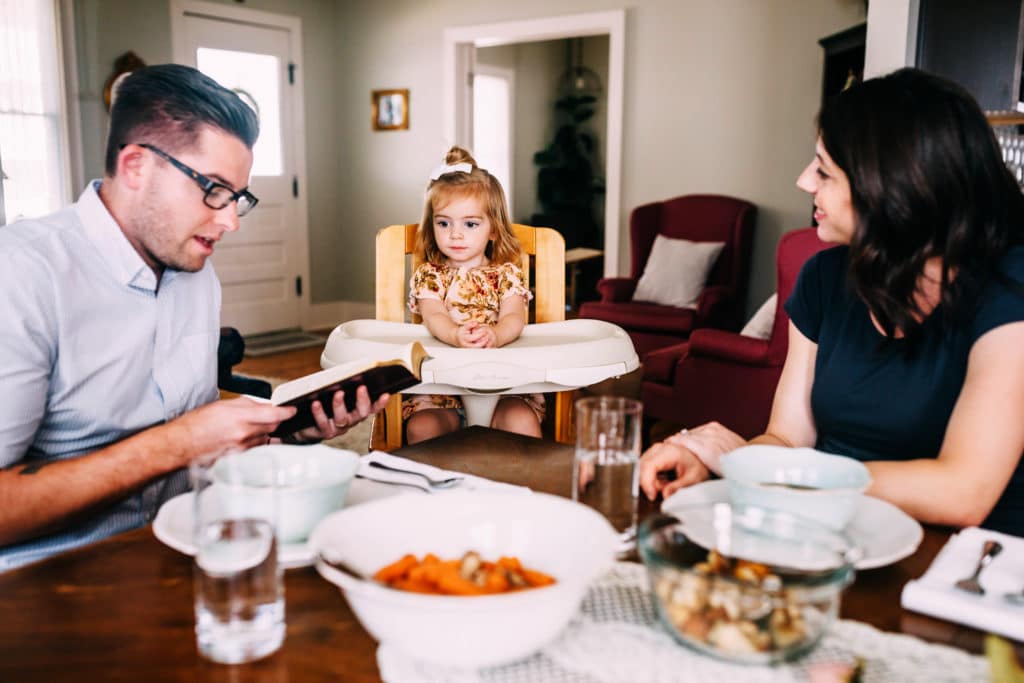Let’s face it: Going to Mass with children is a gamble. As much as every parent wants to believe they have heavenly and angelic offspring, any little human has the ability to swing between both ends of the behavioral spectrum. Often this leaves us anxiously waiting on the edge of our pew,
feeling like we are playing Catholic roulette.
My wife, Stef, and I have a toddler who is generally mild-mannered. Our 2-year-old daughter, Evelyn — her name meaning “life” and “light” — certainly brings both words to reality in ways good and, sometimes, not so good when we are at Mass.
Regardless of her behavior, we know the Mass is at the center of our Christian life. It is where we meet Jesus in the Gospel and encounter his love and mercy. We need this encounter to sustain our living relationship with God!
Both Stef and I have served as Catholic missionaries, but we did not fully embrace our faith until the later years of college. We understand the importance of a relationship with Jesus Christ and the beauty that is the Catholic Mass, but becoming parents has taught us that no matter how much you know about evangelization or catechesis, raising little ones in the faith is a whole new ballgame.
There is a lot of pressure on a Christian parent to raise faithful, spirit-led children. We must ask many questions and make daily decisions to ensure our families have a true space in the domestic church to encounter the person of Jesus Christ and follow him as saints into eternal life. Do we send our kids to Catholic school? Should we enroll in CCD or Catechesis of the Good Shepherd? Do our kids need to attend every youth conference or service activity available to them? No matter the answers to these questions, there is always one constant on which we ought to focus every week: the Mass.
Pope Emeritus Benedict XVI refers to the Eucharistic celebration as “the greatest and highest act of prayer.” So, we ought to have a yearning in our heart to receive Jesus every day and not only bring our family to Mass, but bring the Mass home to our family. Our desire is not always a burning one, but if we are faithful and find small ways to incorporate the celebration of Christ’s sacrifice throughout our daily lives, our desire for the Mass will slowly and steadily grow, and our family will begin to make connections between the Mass and our life at home.
The following daily activities are designed to help you partake in some of the most beautiful elements of the Mass and familiarize your family with what it looks like to celebrate the death and resurrection of Christ wherever you go.
Monday: Penitential Act (Kyrie)
At the beginning of every Mass, we prepare our hearts to receive Christ by calling to mind the ways we have fallen short in loving God and then asking for his mercy. It is like a fresh start for us to enter more fully into the mystery of God’s love.
Do together: At the beginning of the week, have your family choose a space in the house to clean or tidy up. Set a timer, and when it goes off, gather everyone together and bless one another with holy water, making a commitment to “come clean” into a new week.
Tuesday: Glory to God (Gloria)
Once we position our hearts to be more aligned with Christ through the penitential act, we give adoration and praise to God by singing the Gloria. This prayer draws us back to the joyous moment Christ was born and the angels sang in jubilation.
Do together: Read aloud Luke 2:10-14 and then draw angels to hang in your children’s bedrooms or on the refrigerator.
Wednesday: Gospel
The Liturgy of the Word is the first main part of the Mass. This is when we hear readings from both the Old and New Testaments, as well as the Psalms. The Gospel is taken from one of four writers: Matthew, Mark, Luke or John.
Do together: In preparation for Sunday Mass, take turns reading the upcoming Gospel passage. Lead your family in a short discussion about what is happening in the story and what lessons we might be able to learn.
Thursday: Universal Prayer (Prayers of the Faithful)
After the readings and the homily given by the priest or deacon, we pray for the needs of the church and the world.
Do together: Create a prayer journal in which your family can write down their own special intentions each night. You can come back to this as often as you want to build the habit of intercessory prayer as a family.
Friday: Preparation of the Altar
The Liturgy of the Eucharist is the second main part of the Mass. This begins with the presentation of the gifts and the preparation of the altar.
Do together: Create a small altar or prayer space in your home. This can be a simple table adorned with a crucifix, a Bible and other holy images. You might even look for a chalice or other sacred objects we see at Mass so you can add to your altar over time. Allow this space to become a focal point of your family prayer time. We like to include special images that correspond with certain holy days or saint feast days. This is a clear visual representation of the Mass, as the home altar can look very similar to the altar we see in the church.
Saturday: The Lord’s Prayer
This is perhaps the most familiar element of the Mass because The Lord’s Prayer, or the “Our Father,” is a commonly recited prayer.
Do together: Together, read Matthew 6:9-13. Write the prayer on cardstock and then create a simple puzzle by cutting the paper with scissors. Work together to complete the puzzle, then say the prayer aloud.
Sunday: Communion
Although not everyone in your family might be of age to receive the Eucharist, we can enter into the mystery together by reflecting on the story of The Last Supper.
Do together: Make it a point to gather your whole family for a meal this day and begin by reading aloud Matthew 26:26-28. This simple effort can help your family understand the importance and power of the Eucharist not only at Mass, but in your own home.
